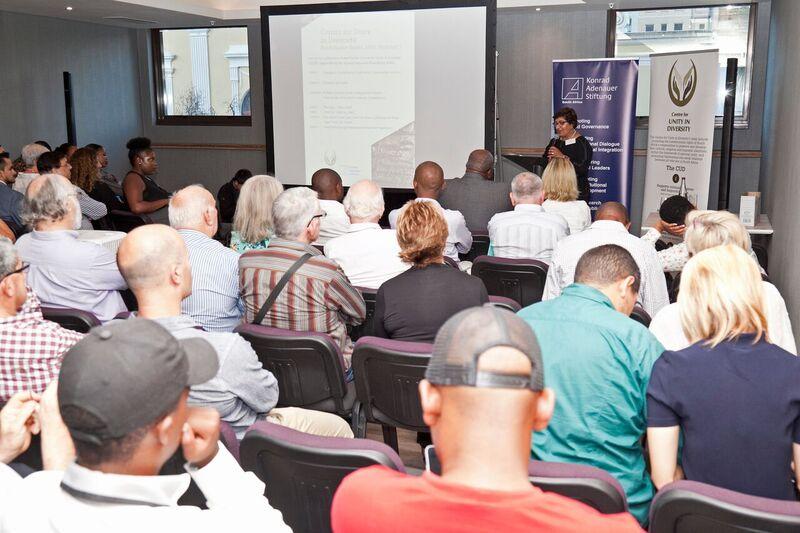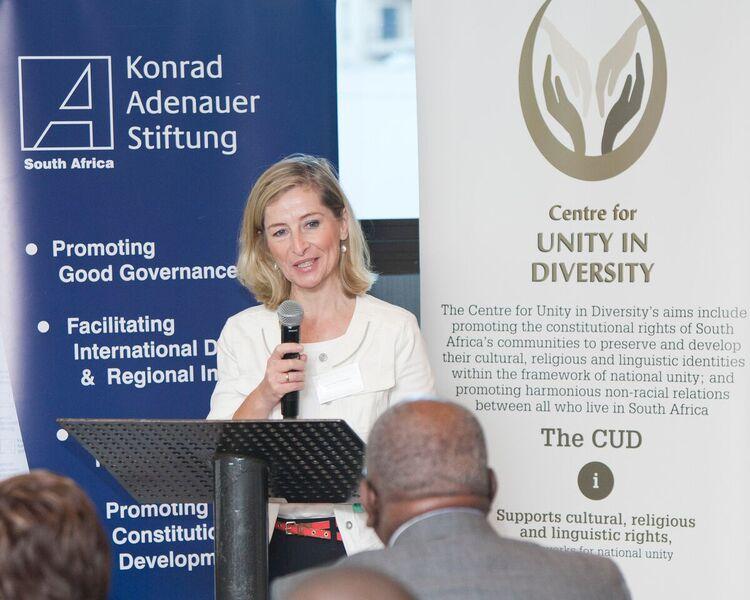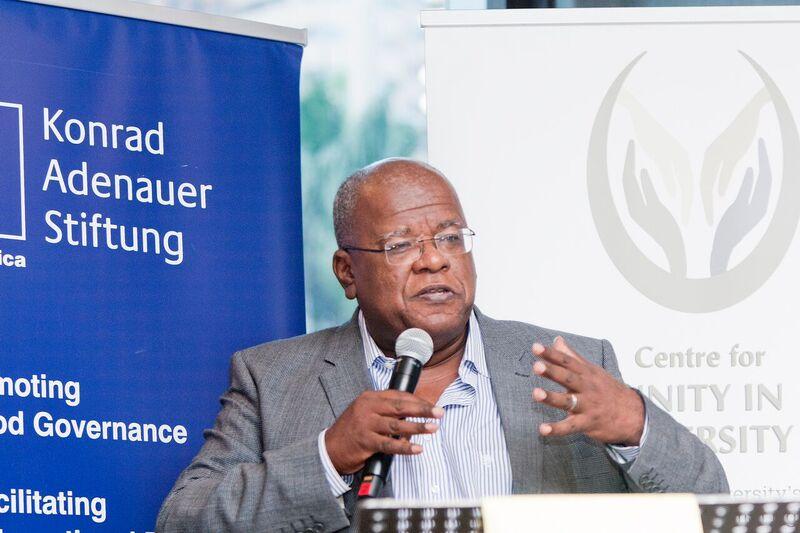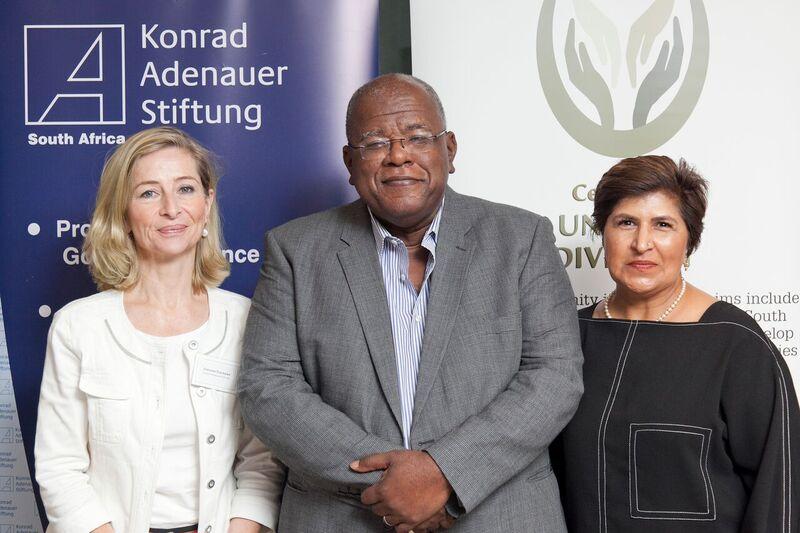The roundtable discussion was started off with welcoming remarks by Mrs. Zohra Dawood, director of the CUD, and the KAS Project manager Mrs. Christina Teichmann. The opening remarks were followed by a presentation by Prof. Jansen, who used many examples from his own time as vice-chancellor of the Free State University to bring his arguments across.
Prof. Jonathan Jansen is a renowned South African academic and book author in the area of education, former vice chancellor of the University of the Free State and currently distinguished professor at the Faculty of Education at the University of Stellenbosch.
Shift in campus culture
In his speech Prof. Jansen discussed the shift in campus culture at South African universities, which was triggered by the student protests in the years 2015/2016. In 2015/2016 the South African universities experienced a series of student unrests during which the students demanded no increase in tuition fees and the removal of symbols, which they felt represented Colonialism and Apartheid, such as the statue of Cecil John Rhodes at the University of Cape Town. According to Prof. Jansen the campus culture has undergone a fundamental change since the protests and the new culture is not compatible with values such as academic freedom, non-violence and respect for other opinions and viewpoints. He criticizes the “silencing” of alternative voices, especially voices of the white population. Universities should be the one place where everybody has the right to speak. Furthermore, he strongly condemned the arbitrary destruction of cultural and heritage assets by students, without any rational examination of the subject beforehand. Instead of indiscriminately tearing down the statues and destroying symbols from the colonial times and the Apartheid era, the statues and symbols should be used as a basis to talk about racism und the existing inequality in a progressive way. Besides this challenge on how to deal with the past in a constructive way, the universities experience currently an unprecedented increase of violence on the part of the students. (Perceived) symbolic or structural violence is used as a justification for physical violence by some of the students. Prof. Jansen views the politics of former President Jacob Zuma as partly responsible for this situation since universities are more and more instrumentalised as a playball for party political purposes. Prof. Jansen pointed out that the best way to reverse this development is a trust based relationship between lecturers and students.
“Two-class” education system
At the end of his speech Prof. Jansen de-scribed the trend towards a “Two-class” education system. The universities are more and more divided into rich and poor institutions. He identifies three reasons for this trend: Firstly universities adhere to the practice to hire teaching staff based on their skin color even if they are less qualified than teachers with a different skin color. The second reason is the universities’ inability to maintain everyday business as a consequence of scarcer financial resources. And thirdly the strong emphasis on the abolition of tuition fees. If tuition fees are abolished for university education as former president Zuma has promised, the financial resources for teaching and maintenance of the institutions will automatically be reduced. It will then be extremely difficult for universities in South Africa to provide quality tertiary education and compete on an international level.
The speech was followed by a question and answer session between Prof. Jansen und the audience. The audience agreed with Prof. Jansen that there has to be an ongoing dialogue with the students and that their concerns have to be taken seriously. However it is necessary to have a dialogue culture which does not exclude any segment of society.










